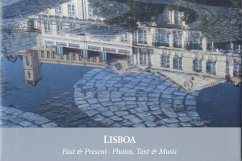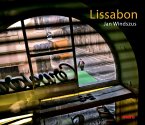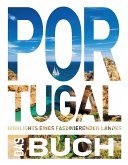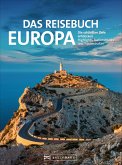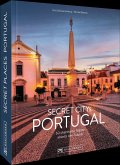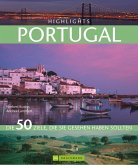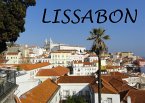Lisboa
Past & Present _ Photos, Text & Music
Photobook + CD
Lisbon, the city upon 7 hills ("sete collinas"); slightly run-down, melancholy with it's unique light, and it's relaxed atmosphere. These photos were taken between the years 1999 until 2015. The gloomy charm of this "City on the Tejo" fascinates travelers from around the world.
This photobook of Ulrich Balss brings together, for the first time, literature, music and pictures on the subject. "Through my engagement as a music producer I have traveled often to Lisbon, where I've received specific tips and insights from among others, the musicians featured in the accompanying CD, which gives the whole a very personal touch." Ulrich Balss
The focus of the book are the pavements, the ceramic-tiled "Azulejos", The electric streets cars ("Electrico") and the graffiti. These are, together with murals, scattered all over the city, often critical of capitalism. Renowned street artists flocked to Lisbon from around the globe in response to the city-initiated "Crono Project", which encouraged the graphic artists to spray their messages here. This inspired Ulrich Balss to use quotes from Pessoa's "The Anarchist Banker".
Fernando Pessoa
He is one of the most important poets and most significant authors of 20th century Portugal. He was born in Lisbon in 1888, grew up in Durban, S. Africa, and returned home at 17. Here he studied literary science, and later worked as a commercial agent. After more than two dozen changes of address, he finally rented a floor of the building at Rua Coelho da Rocha Nr. 16 in 1920, together with his mother and half-siblings. Here he passed the last 15 years of his life, though shortly after moving in, developed a deep depression. In addition to the "Anarchist Banker",(O Banqueiro Anarquista), which I've quoted in this book, there is his "Book of Disquietude" (Livro Do Desassossego), perhaps his most important work. He died in 1935 here in his home-town.
The Anarchist Banker /O Banqueiro Anarquista, 1922.
The Music:
Dona Rosa
Rosa Francelina Dias Martins was born in 1957 in Lisboa in a very poor family. At the age of four a case of meningitis caused her complete blindness. She lived in Lisboa up to the age of 20 when she was send back to her family in Northern Portugal. But knowing that her family could not accept here blindness she took the first train back to Lisbon instead of the bus to her family.
Back in Lisbon she was supported by beggar companions and started to sell magazines and lottery in the streets to survive. As she loved to sing someone suggested that she should do this to earn her money instead of selling magazines.
She started to do so with enough success to survive under poor conditions. Later she received a triangle and added the instrument to accompany her singing.
As a street musician she was discoved by the Austrian multimedia artist André Heller in the streets of her hometown. He invited her to an international TV production for the Austrian State TV station ORF entitled "Voices of God" with international artists like the Sabri Brothers, Black Umfolosi and the Bulgarians Voices ANGELITE.
JARO discovered her talent during the production in Marakesh, Morocco, in May 1999. Subsequently recording sessions were made in Lisbon. Dona Rosa's first CD "histórias da rua" was presented in JARO's VOICES Series in the fall of 2000. Second album "Segredos" was released summer 2003 with excellent reviews. Meanwhile Dona Rosa and her trio did performances in 12 European countries with more than 200 concerts from club stages to prestigious classical music halls. For 2004 are scheduled international concerts in Moscow, Istanbul, Italy, Greece, Spain, Germany, Taiwan, England.
Discography:
Historias da Rua - JARO 4228-2 (2000)
Segredos - JARO 4243-2 (2003)
Alma Livre - JARO 4282-2 (2007)
Sou Luz - JARO 4309-2 (2012)
Dona Rosa:
Iliked to be treated as a normal person...
Hinweis: Dieser Artikel kann nur an eine deutsche Lieferadresse ausgeliefert werden.
Past & Present _ Photos, Text & Music
Photobook + CD
Lisbon, the city upon 7 hills ("sete collinas"); slightly run-down, melancholy with it's unique light, and it's relaxed atmosphere. These photos were taken between the years 1999 until 2015. The gloomy charm of this "City on the Tejo" fascinates travelers from around the world.
This photobook of Ulrich Balss brings together, for the first time, literature, music and pictures on the subject. "Through my engagement as a music producer I have traveled often to Lisbon, where I've received specific tips and insights from among others, the musicians featured in the accompanying CD, which gives the whole a very personal touch." Ulrich Balss
The focus of the book are the pavements, the ceramic-tiled "Azulejos", The electric streets cars ("Electrico") and the graffiti. These are, together with murals, scattered all over the city, often critical of capitalism. Renowned street artists flocked to Lisbon from around the globe in response to the city-initiated "Crono Project", which encouraged the graphic artists to spray their messages here. This inspired Ulrich Balss to use quotes from Pessoa's "The Anarchist Banker".
Fernando Pessoa
He is one of the most important poets and most significant authors of 20th century Portugal. He was born in Lisbon in 1888, grew up in Durban, S. Africa, and returned home at 17. Here he studied literary science, and later worked as a commercial agent. After more than two dozen changes of address, he finally rented a floor of the building at Rua Coelho da Rocha Nr. 16 in 1920, together with his mother and half-siblings. Here he passed the last 15 years of his life, though shortly after moving in, developed a deep depression. In addition to the "Anarchist Banker",(O Banqueiro Anarquista), which I've quoted in this book, there is his "Book of Disquietude" (Livro Do Desassossego), perhaps his most important work. He died in 1935 here in his home-town.
The Anarchist Banker /O Banqueiro Anarquista, 1922.
The Music:
Dona Rosa
Rosa Francelina Dias Martins was born in 1957 in Lisboa in a very poor family. At the age of four a case of meningitis caused her complete blindness. She lived in Lisboa up to the age of 20 when she was send back to her family in Northern Portugal. But knowing that her family could not accept here blindness she took the first train back to Lisbon instead of the bus to her family.
Back in Lisbon she was supported by beggar companions and started to sell magazines and lottery in the streets to survive. As she loved to sing someone suggested that she should do this to earn her money instead of selling magazines.
She started to do so with enough success to survive under poor conditions. Later she received a triangle and added the instrument to accompany her singing.
As a street musician she was discoved by the Austrian multimedia artist André Heller in the streets of her hometown. He invited her to an international TV production for the Austrian State TV station ORF entitled "Voices of God" with international artists like the Sabri Brothers, Black Umfolosi and the Bulgarians Voices ANGELITE.
JARO discovered her talent during the production in Marakesh, Morocco, in May 1999. Subsequently recording sessions were made in Lisbon. Dona Rosa's first CD "histórias da rua" was presented in JARO's VOICES Series in the fall of 2000. Second album "Segredos" was released summer 2003 with excellent reviews. Meanwhile Dona Rosa and her trio did performances in 12 European countries with more than 200 concerts from club stages to prestigious classical music halls. For 2004 are scheduled international concerts in Moscow, Istanbul, Italy, Greece, Spain, Germany, Taiwan, England.
Discography:
Historias da Rua - JARO 4228-2 (2000)
Segredos - JARO 4243-2 (2003)
Alma Livre - JARO 4282-2 (2007)
Sou Luz - JARO 4309-2 (2012)
Dona Rosa:
Iliked to be treated as a normal person...
Hinweis: Dieser Artikel kann nur an eine deutsche Lieferadresse ausgeliefert werden.

